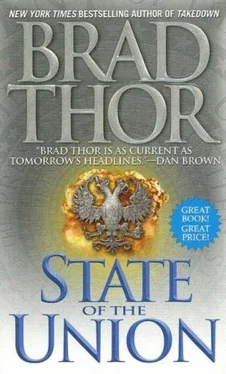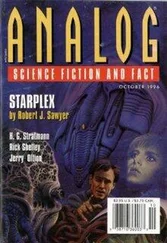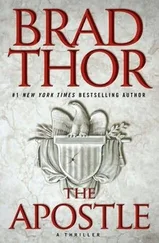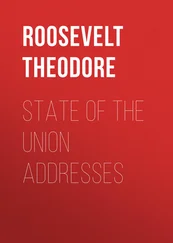“So much for us not being together,” mumbled Harvath as he joined Herman in front of the station manager’s glassed-in control booth.
Herman grabbed a system map and pretended to search for their destination as he said, “Look at the station master’s closed-circuit cameras. What do you see?”
“I see our guy standing towards the end of the platform,” replied Harvath.
“What else?”
“Nothing really.”
“Exactly,” responded Herman. “This early in the morning, there aren’t many people using the U-Bahn. I’m concerned that if we go down to the platform too soon, he might spot us.”
“What are we supposed to do then?”
“He’s on the U6 platform waiting for the train going south-”
“That’s the train that goes to Tempelhof Airport. What the hell is he up to?”
“I don’t know, but here’s what I want to do. We wait here until the train enters the station. It looks like he is going to get onboard the last car. There are always people running into the U-Bahn at the last minute. We’ll do the same. We’ll run down to the platform, hop on one of the forward cars and then make our way back so we can watch him.”
Harvath didn’t like it. He didn’t like any of it. Tailing someone on a subway was one of the most difficult things to do. If the subject got off and you followed and then the subject jumped back on at the last minute, what could you do?Nothing. In plain English, you were fucked. Harvath had come too far to get fucked at this point. He was racked by the age-old surveillance dilemma-Do you play him? Or do you pop him?With one man already dead, his ribs killing him and a surveillance scenario in the subway system of Berlin that was severely less than optimal, he was beginning to think that they were quickly closing in on the only sane alternative-to pop Überhof and lean on him like a C-17 Globe-master full of bricks until he told them what they needed to know.
Herman seemed to sense what he was thinking. “We have a few minutes before the next train arrives. I am going to call Sebastian on my cell phone and let him know what we’re doing. He can space men along the line and have them get on at different stations. Don’t worry. We’re not going to lose him.” And with that, Herman walked back towards the stairs to the street level and got on his phone.
Harvath had to admit, it sounded like a halfway decent plan. By switching the members of the surveillance team, maybe they could still follow Überhof without his knowing, andmaybe he would lead them to Gary Lawlor. Then again, that’s how they had started this whole thing and someone had already died. But maybe Überhof had just gotten lucky. Maybe the operative had screwed up somehow.
Neither of those ideas sat well with Harvath. He reminded himself of how well trained Sebastian and his men were. Writing off the operative who had gotten killed as careless or unlucky, wasn’t right. That being said, the fact that Überhof had picked up on a tail so fast and in such thick fog really unnerved Harvath.Not only was Überhof good, he was dangerous, Harvath decided. Underestimating him any further would be a big mistake.
Herman returned from making his phone call just as the rumble of an approaching train could be heard.
“Did you get a hold of Sebastian?” asked Harvath, his eyes glued to the black and white monitor inside the station manager’s glass booth.
“Yes and he’s going to do what we asked, but you need to know that he and his men are very upset and want Überhof dead.”
“If he’d killed one of my teammates I’d want him dead too, but this is our only chance to get to Gary.”
“And they understand that. They’re professionals. They’ll do what they’re supposed to do,” replied Herman.
“But when it’s over,” offered Harvath, “I don’t care what they do with the guy.”
“I thought you might feel that way. Let’s make a move for the platform. That train’s not going to sit there for long.”
The buzzer, which signaled that the doors were about to close, was already sounding when the pair hit the bottom of the escalator and ran for the first car. They passed a large mirror mounted at the end of the platform that allowed the train’s engineer to look back down the entire length of his train and make sure everyone was onboard before pulling out of the station. As they jumped aboard the train, something in the mirror caught Harvath’s eye.
“He got off!” yelled Scot as he turned and lunged for the closing doors.
Startled passengers watched as the two men pried the doors open and squeezed out of the train.
“You’d better be sure about this,” said Herman as he looked up and down the platform as the train began to pull away, “because I don’t see him.”
“Give me the scope,” said Harvath.
Herman handed it to him and then casually walked along the edge of the platform covertly studying the faces in each of the bright yellow U-Bahn cars as the train picked up speed and pulled out of the station.
Harvath didn’t bother examining the faces of the U-Bahn passengers. He knew Überhof had gotten off. It had just been a flash in the mirror, but Harvath was confident about what he had seen. He was also pretty sure he knew where the man had gone.
It took the Specter scope less than ten seconds to power all the way up. At the far end of the platform, Harvath held it up to his eye and peered into the heavy blackness of the faintly illuminated train tunnel.
“Unless he was lying down on the floor,” said Herman as he rejoined Harvath, “he wasn’t on that train.”
“I know,” replied Scot as he adjusted the Specter.
“So where is he?”
Harvath handed Herman the scope and said, “About fifty meters down along the wall on the right hand side. Take a look for yourself.”
After watching Überhof pick his way down the tunnel for several moments, Herman asked, “What the hell is that asshole up to?”
“I don’t know,” answered Harvath, pulling out his H amp;K and screwing on the silencer, “but I think we ought to go find out.”
They followed Überhof for over fifteen minutes until he came to a short metal service door and disappeared through it. When they passed through the door, they found that it led to a long, low ceilinged tunnel. Several minutes later, it opened up and they were amazed by what they saw.
“What is this place?” asked Harvath as he shined his SureFire flashlight around the abandoned, cobweb-covered U-Bahn station.
“Geisterbahnhöfe,” replied Herman. “Ghost station. I didn’t think any of these existed anymore.”
“What the hell is aghost station?” demanded Harvath as he painfully pulled himself up onto the filthy platform.
With its dreary green tiles, old-fashioned signs and the Communist era propaganda posters hanging above the benches, the station looked like it had been frozen in time-a true relic of the Cold War. Harvath could see an old newspaper kiosk that must have once sold cigarettes and magazines, but which had been retrofitted into a machine gun nest, as well as Communist era propaganda posters hanging above the benches.
“When the Soviets built the wall, they split off the subway system in East Berlin into its own network. Because of a quirk in geography, two of the West Berlin lines needed to pass briefly through East Berlin before circling back around to the West. It was very strange. You could ride through East Berlin and see stations like this completely abandoned except for the stern-faced soldiers standing on the platforms with machineguns.”
“And those abandoned stations were what you calledGeisterbahnhöfe?”
“Yes, but after the reunification, all of the stations were supposedly reopened.”
Читать дальше












